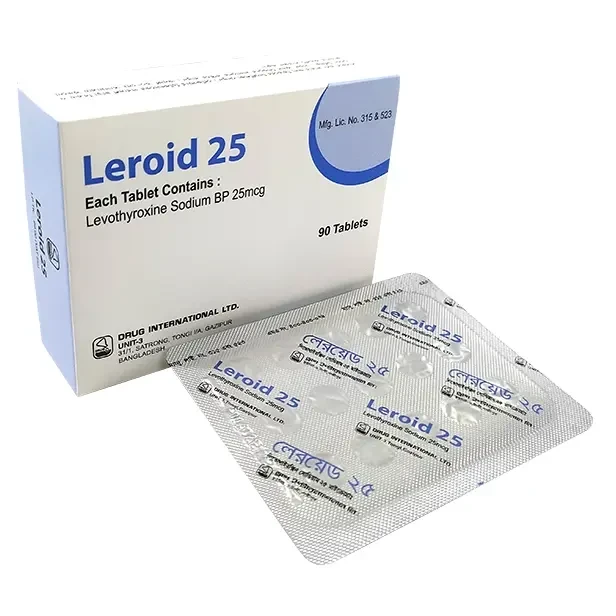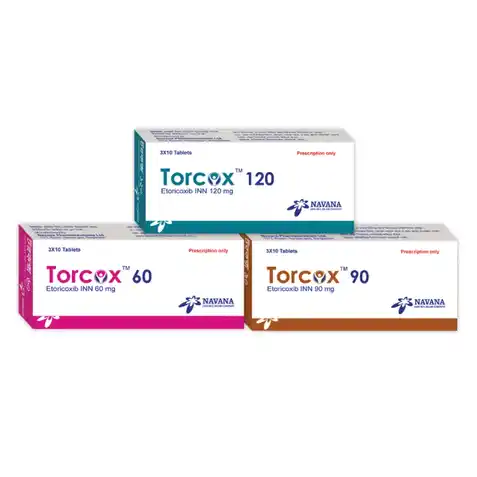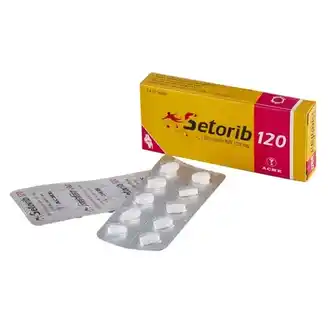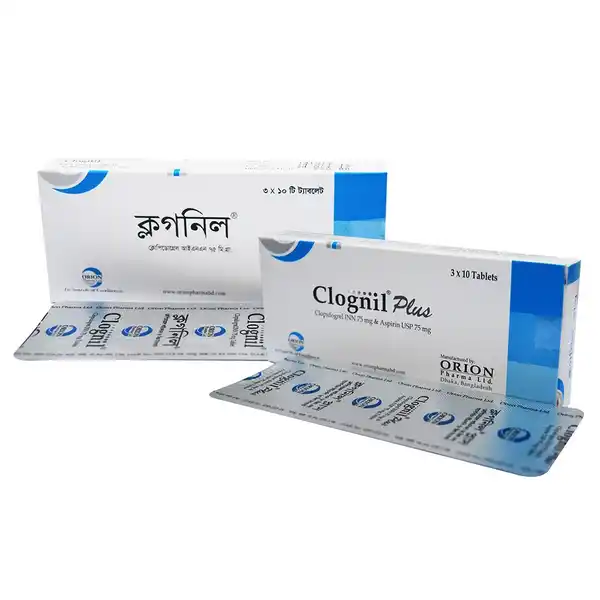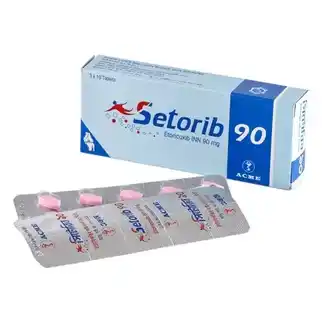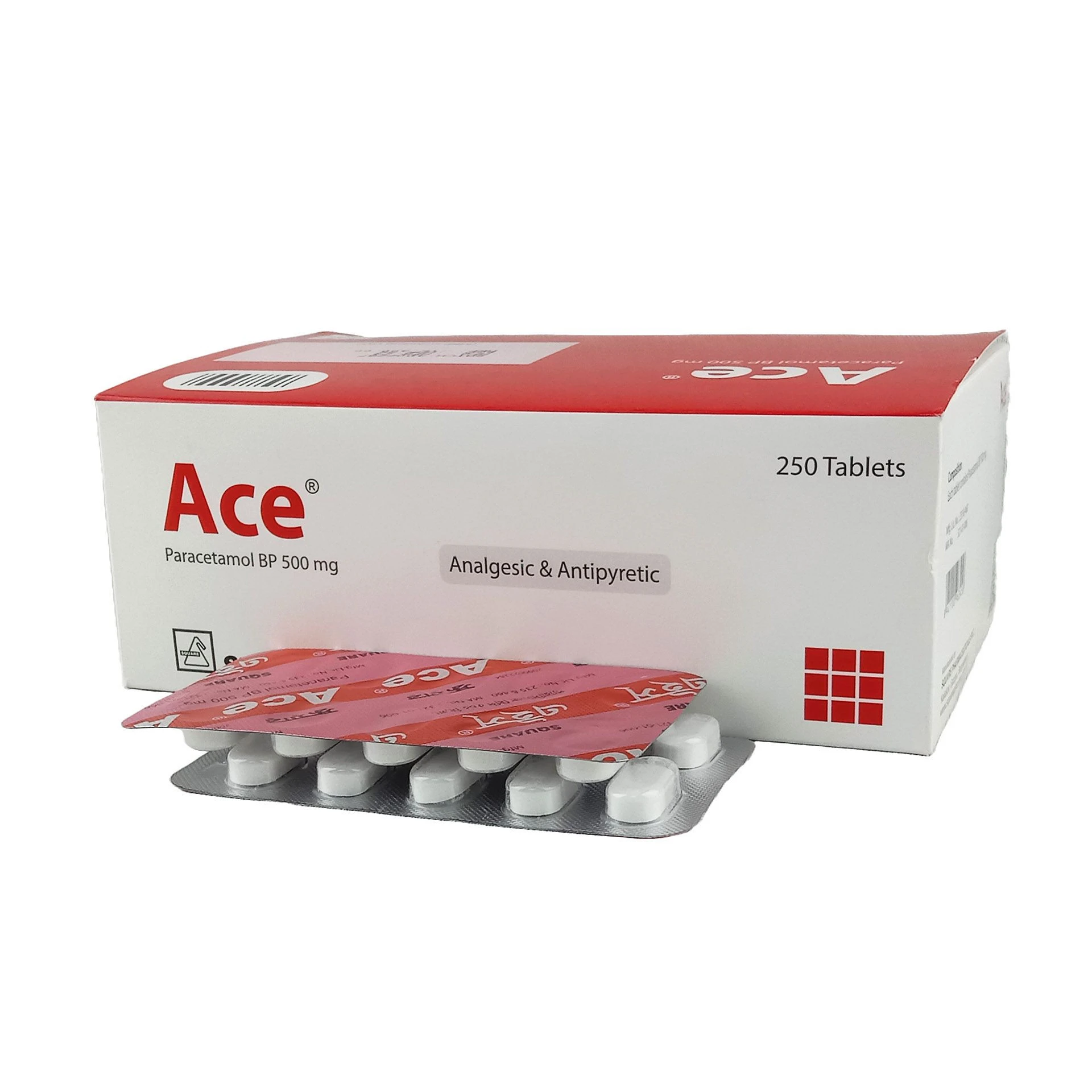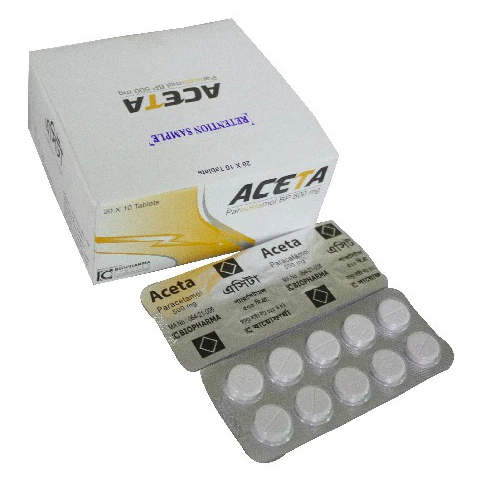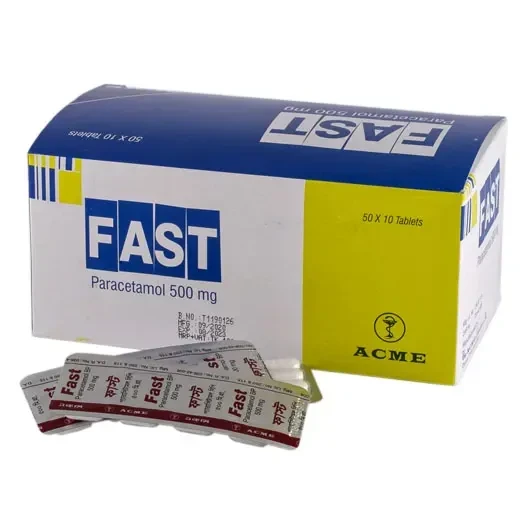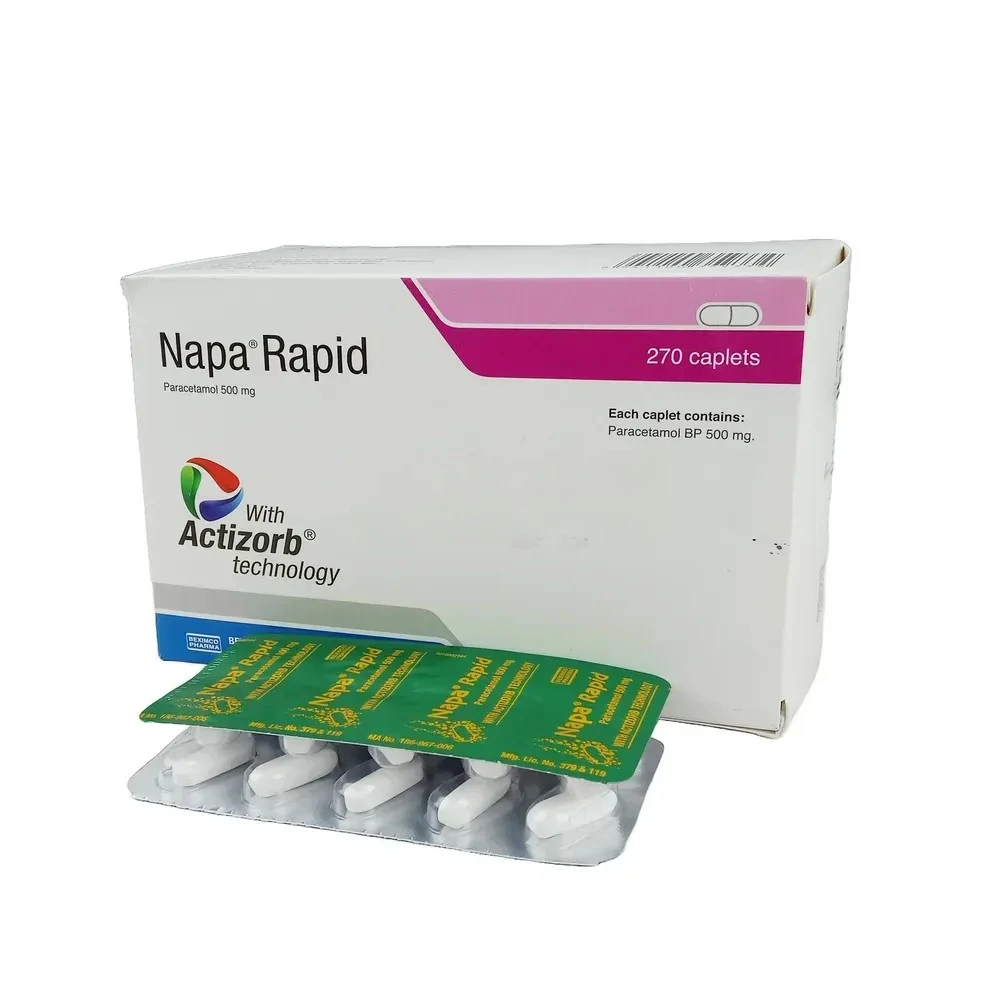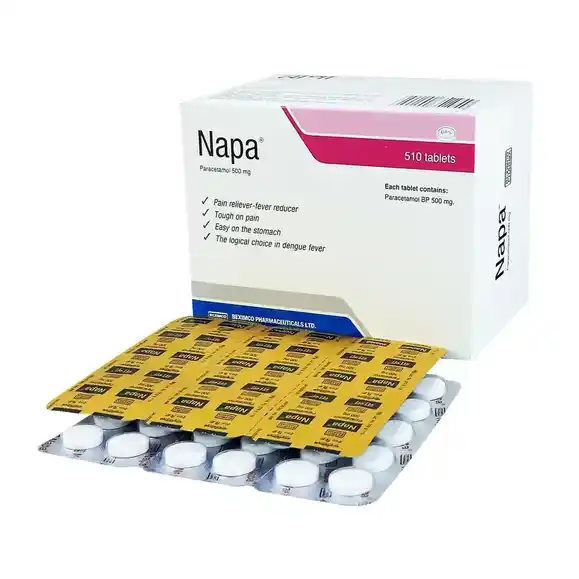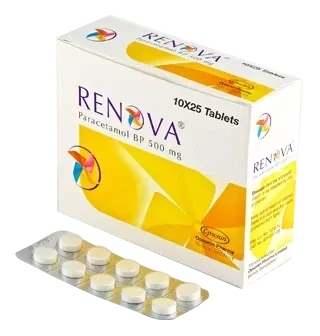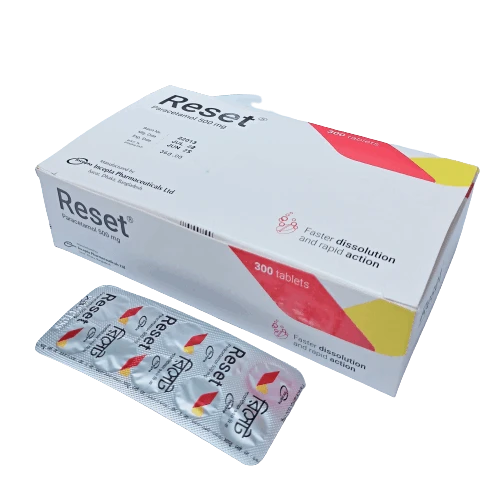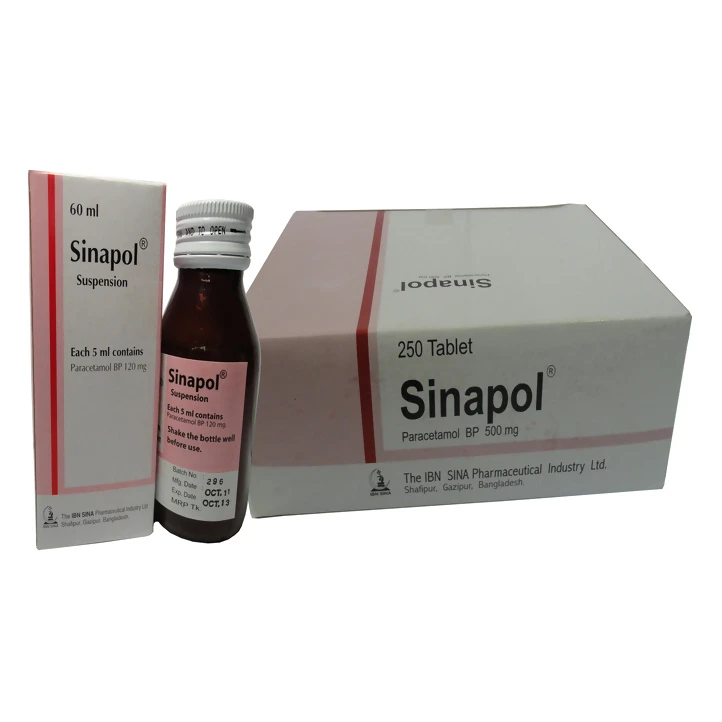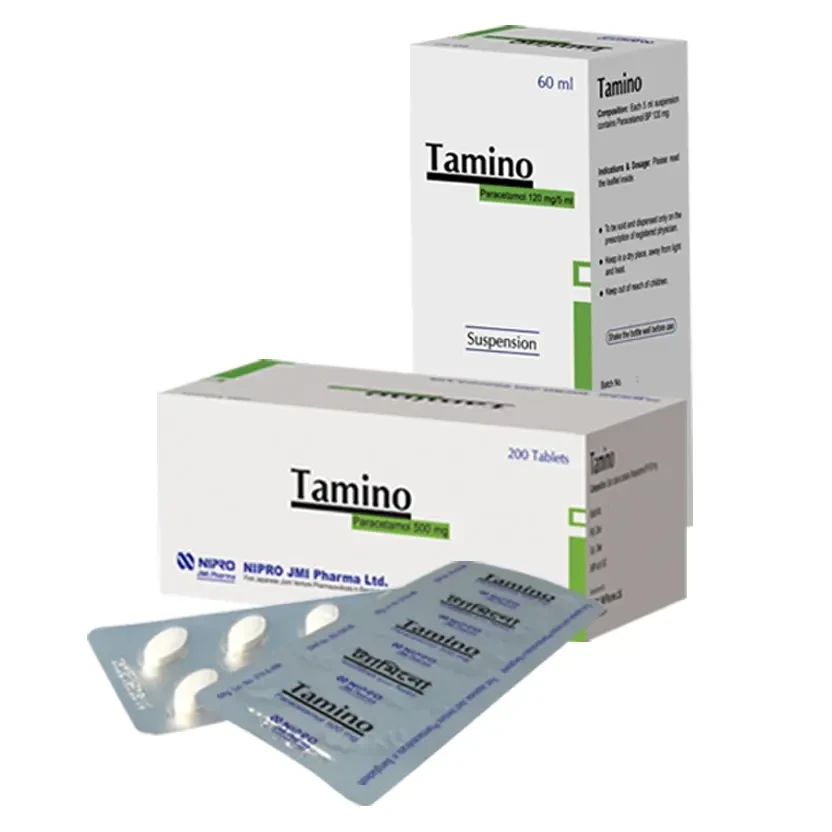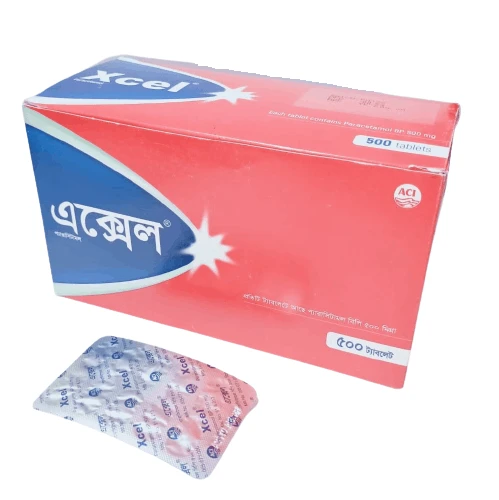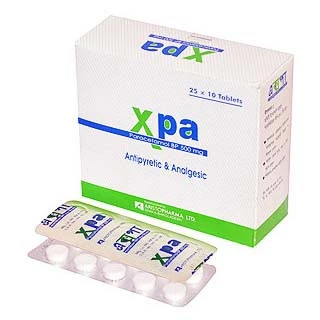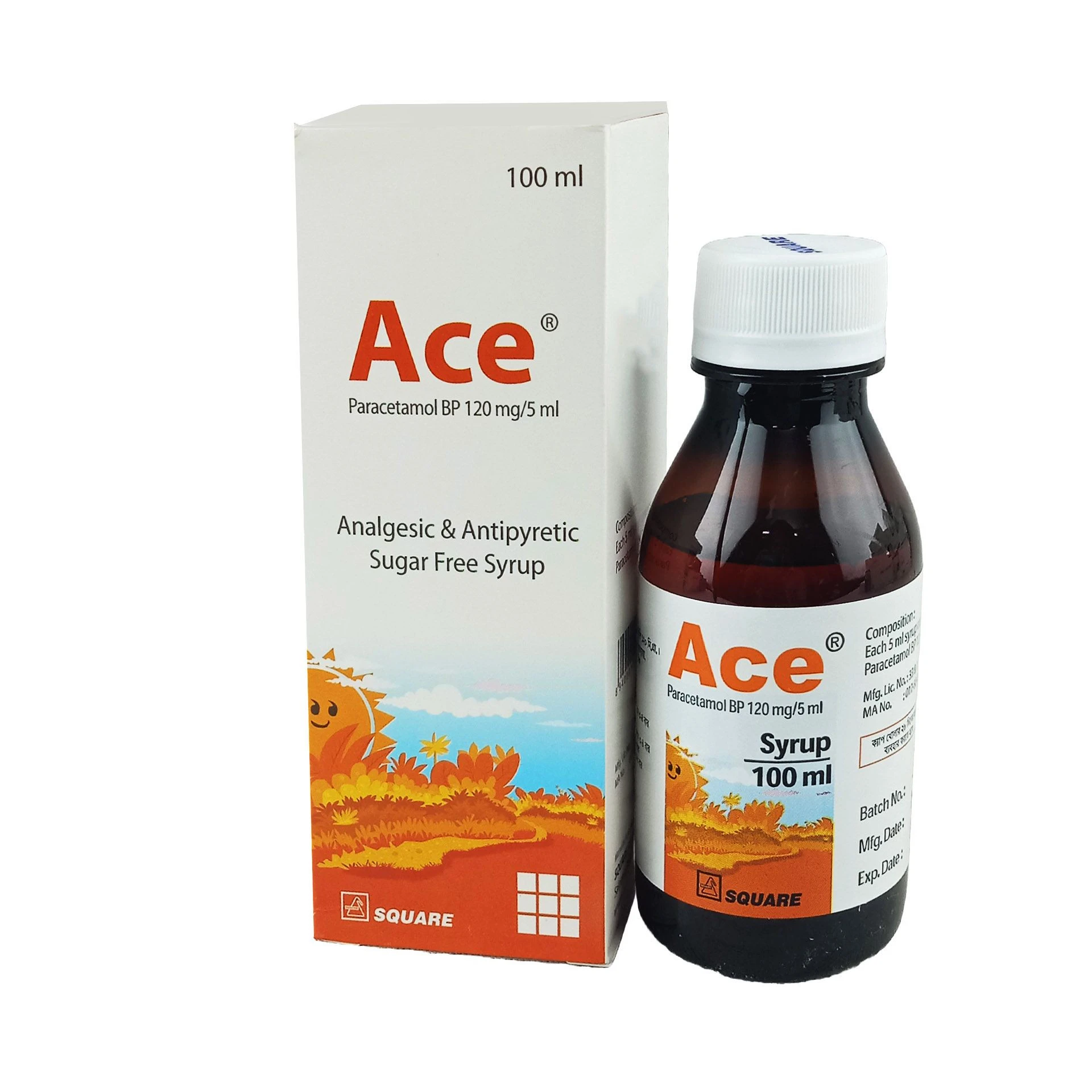SAFE
- Consuming alcohol with Leroid 25 does not cause any harmful
side effects.
SAFE IF PRESCRIBED
- Leroid 25 is safe to use during pregnancy. Most studies have
shown low or no risk to the developing baby.
SAFE IF PRESCRIBED
- Leroid 25 is safe to use during breastfeeding. Human studies
suggest that the drug does not pass into the breastmilk in a significant amount
and is not harmful to the baby.
SAFE
- Leroid 25 does not usually affect your ability to drive.
CONSULT YOUR DOCTOR
- There is limited information available on the use of Leroid
25 in patients with kidney disease. Please consult your doctor.
CONSULT YOUR DOCTOR
- There is limited information available on the use of Leroid
25 in patients with liver disease. Please consult your doctor.
Medicine Overview of Leroid 25 25mcg Tablet
Introduction
- Leroid 25 is a medicine used to treat an underactive thyroid
gland (hypothyroidism). It replaces the hormone which was not being produced by
your thyroid gland in sufficient quantity and helps regulate your body’s energy
and metabolism. Before you start taking Leroid 25, your doctor will do a blood
test to see what dose you need. Once you start taking the medicine, you will
have regular blood tests to see how well it is working, and the dose may be
adjusted from time to time. Take this medicine exactly as directed by your
doctor. It is best taken on an empty stomach before your first meal of the day.
You should take this medicine regularly to get the maximum benefit. It may take
several weeks before your symptoms start to improve. Keep using this medicine
even if you feel well. You may need to take it for the rest of your life. If
you stop taking it, your symptoms are likely to come back. The most common side
effects of this medicine are caused by taking a bigger dose than you need.
Possible side effects include palpitations (irregular heart beat), vomiting,
anxiety, diarrhea, weight loss, nervousness or restlessness. Most side effects
will disappear once you are on the right dose. Some people may suffer a severe
reaction to high levels of thyroid hormone. Call your doctor straight away if
you have a very high temperature, fast or irregular heart rate, low blood
pressure, yellowness in eye/skin, confusion or fits. Leroid 25 may cause weight
loss but should not be prescribed or taken to treat obesity. If you become
pregnant while taking this medicine, inform your doctor right away as the dose
may have to be increased/readjusted. Many other drugs affect the way this
medicine works. Ask your doctor for advice if you are taking any other
medications.
Uses of Leroid 25
Hypothyroidism
Side effects of Leroid 25
Common
Palpitations
Vomiting
Anxiety
Diarrhea
Flushing (sense of warmth in the face, ears, neck and trunk)
Weight loss
Nervousness
Restlessness
How to use Leroid 25
- Take this medicine in the dose and duration as advised by
your doctor. Swallow it as a whole. Do not chew, crush or break it. Leroid 25
is to be taken empty stomach.
How Leroid 25 works
- Leroid 25 is a synthetic version of a hormone produced by
the thyroid gland. It works by replacing the thyroid hormones that your thyroid
gland cannot produce in a sufficient quantity, and relieves the symptoms of
hypothyroidism (tiredness, weight gain, and depression).
What if you forget to take Leroid 25?
- If you miss a dose of Leroid 25, take it as soon as
possible. However, if it is almost time for your next dose, skip the missed
dose and go back to your regular schedule. Do not double the dose.
Quick Tips
- Leroid 25 should be taken on an empty stomach (ideally,
first thing in the morning). No food, milk, or tea should be taken 1 hour
before and 2 hours after taking this medicine.
- It may take 6 to 8 weeks to get the full effect.
- For most people, Leroid 25 can be a lifelong medication. Do
not discontinue it without discussing your doctor.
- Inform your doctor if you have diarrhea, nervousness,
irritability, sleep disturbances, shaking hands, or chest pain. Your doctor may
adjust your dose.
- Leave a gap of at least 4 hours before taking any antacids,
calcium or iron supplements, and multivitamins, as these may interfere with the
effect of the medicine.
- Get your hormone levels checked regularly and inform your
doctor if you notice a significant change in your body weight. The dose may
need to be adjusted.
- Inform your doctor before changing the brand of Leroid 25 as
all brands may not have the same effect.
Brief Description
Indication
- Hypothyroidism, TSH suppression, Myxoedema coma
Administration
- Should be taken on an empty stomach with full glass of
water. Take on an empty stomach ½-1 hr before meals.
Adult Dose
- Oral Mild Hypothyroidism 1.7 mcg/kg or 100-125 mcg PO qDay;
not to exceed 300 mcg/day >50 years (or <50 yr with CV disease) Usual
initial dose: 25-50 mcg/day May adjust dose by 12.5-25 mcg q6-8Week >50
years with CV disease Usual initial dose: 12.5-25 mcg PO qDay May adjust dose
by 12.5-25 mcg q4-6weeks until patient becomes euthyroid and serum TSH
concentration normalized; adjustments q6-8weeks also used Dose range: 100-125
mcg PO qDay Severe Hypothyroidism Initial: 12.5-25 mcg PO qDay Adjust dose by
25 mcg/day q2-4Week PRN Subclinical Hypothyroidism Initial: 1 mcg/kg PO qDay
may be adequate, OR If replacement therapy not initiated, monitor patient annually
for clinical status TSH suppression For thyrotropin-dependent
well-differentiated thyroid cancer: Doses >2 mcg/kg/day may be given as a
single dose to suppress TSH to <0.1 MIU/L. For benign nodules and nontoxic
multinodular goitre: Target TSH is generally higher at 0.1-0.5 MIU/L for
nodules and 0.5-1 MIU/L for multinodular goitre.
Child Dose
Oral Hypothyroidism Age 1-3 months 10-15 mcg/kg/day PO Use
lower starting dose (25 mcg/day) if patient at risk of cardiac failure; if
initial serum T4 lower than 5 mcg/dL begin treatment at higher dose (50
mcg/day) Age 3-6 months 8-10 mcg/kg/day PO, OR 25-50 mcg/day PO Age 6-12 months
6-8 mcg/kg/day PO, OR 50-75 mcg/day PO Age 1-5 years 5-6 mcg/kg/day PO, OR
75-100 mcg/day PO Age 6-12 years 4-5 mcg/kg/day PO, OR 100-125 mcg/day PO
>12 years 2-3 mcg/kg/day PO, OR 150 mcg/day PO Start children with severe or
chronic hypothyroidism at 25 mcg/day; adjust dose by 25 mcg qweek
Contraindication
Untreated hyperthyroidism; uncorrected adrenal failure;
recent MI.
Mode of Action
Levothyroxine Na is a synthetic form of thyroxine which
increases the basal metabolic rate (BMR) and the utilisation and mobilisation
of glycogen stores and stimulates protein synthesis. It is also involved in
normal metabolism, growth and development. These effects are mediated at the
cellular level by the thyroxine metabolite, tri-iodothyronine.
Precaution
Patients w/ CV (e.g. angina, heart failure, HTN), DM and
diabetes insipidus, epilepsy, pre-existing myasthenia syndrome, long-standing
hypothyroidism. Elderly, pregnancy and lactation. Monitoring Parameters Monitor
thyroid function test, clinical signs of hypo- and hyperthyroidism, heart rate
and BP. Lactation: Enters breast milk; use caution
Side Effect
- Nervousness, excitability, tremor, muscle weakness, fatigue,
cramps; sweating, flushing, heat intolerance, headache, fever, insomnia,
tachycardia, palpitations, restlessness, anginal pain, HTN, severe depression,
difficulty in sleeping, excessive wt loss; menstrual irregularities; diarrhoea,
vomiting, psychosis or agitation. Increased bone resorption and reduced bone
mineral density, especially in post-menopausal women; elevated LFT. Potentially
Fatal: Thyrotoxic crisis including convulsions, cardiac arrhythmia, heart
failure, coma.
Interaction
- Reduced absorption w/ iron, antacids, bile acid
sequestrants, colestyramine, simeticone, Ca carbonate, sucralfate, cation
exchange resins. Reduced tri-iodothyronine serum levels w/ amiodarone and
propranolol. Reduced serum levels of thyroxine w/ carbamazepine, phenytoin,
phenobarbital, rifampicin, lithium, oestrogens, sertraline. Androgens may
decrease levothyroxine-binding globulins serum levels. May alter requirements
of antidiabetic drugs. Increased risk of significant HTN and tachycardia w/
ketamine. Increased metabolic demands w/ sympathomimetics (e.g. epinephrine).
May increase anticoagulant effect of warfarin.



